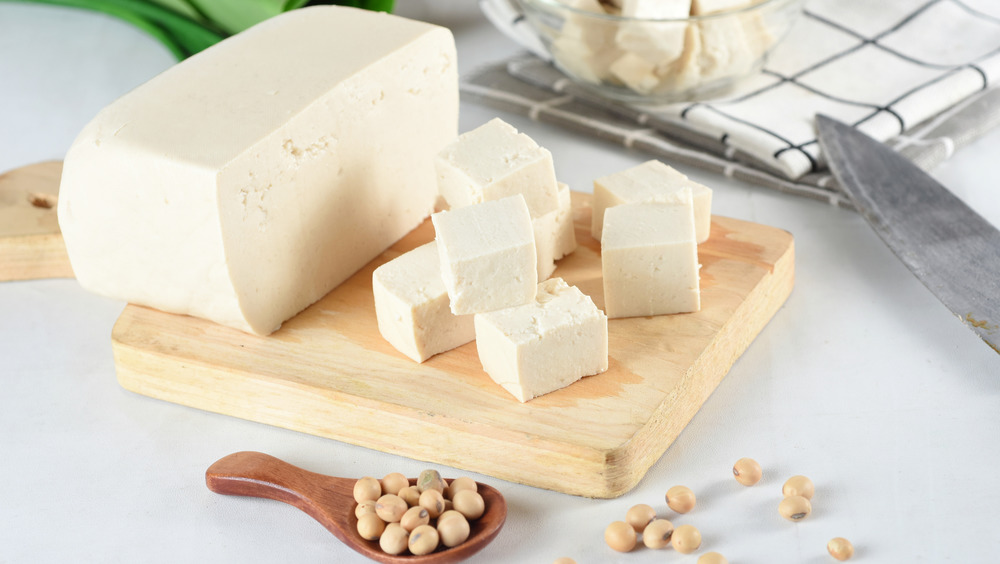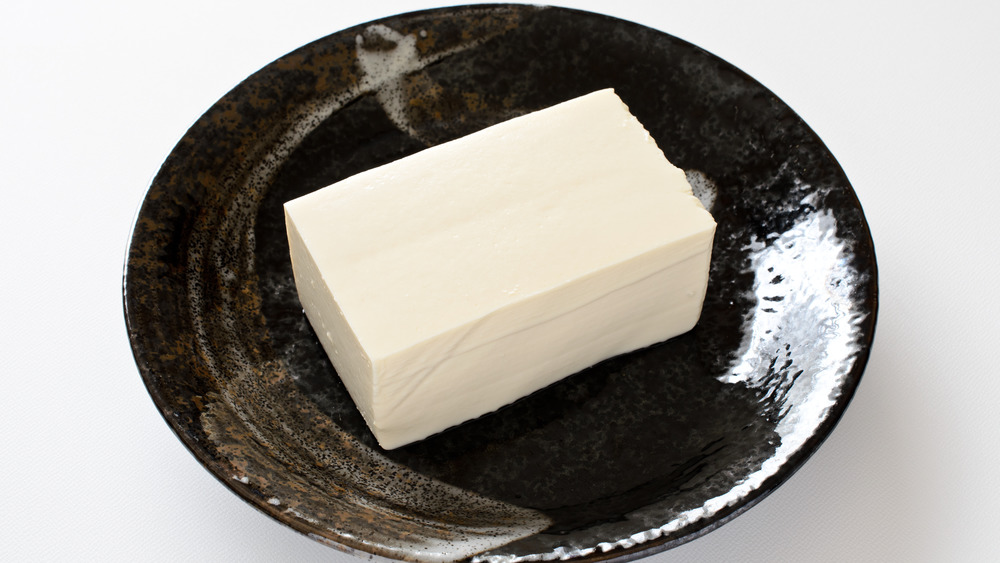This Is The Difference Between Regular And Silken Tofu
Whether you've decided to go vegan, vegetarian, or just trying to eat healthier in general, tofu is an easy addition to your diet. The food is full of health benefits and packed with protein, iron, and calcium. It's also a versatile ingredient that can be cooked in so many different ways: from baked to fried to scrambled to whipped. Yay for soy!
But before you go out and buy up boxes and boxes of tofu from the refrigerated section of your favorite grocery store, you should be aware that there are different types of tofu — and what you want to do with the tofu will dictate which type you should get. In general, there are two main types of tofu: regular and silken. While they are made from the same ingredient, you can't always use them interchangeably (via The Spruce Eats).
Not all tofu types are the same
Regular tofu is what most people likely think of when they think tofu. It has a somewhat spongy texture, and The Kitchn explains that it comes in different levels of firmness, depending on how much water has been pressed out. Also known as bean curd, The Spruce Eats says this type of tofu is ideal for many dishes, with the firm variety especially suited to be stir fried, pan fried, and even crumbled. Regular tofu is also great in soups, and makes a wonderful substitute for eggs in some breakfast dishes (via ChooseVeg).
Silken tofu (also known as Japanese-style tofu) has a much softer consistency, although it also comes in different levels of firmness. Silken tofu has the highest water content and falls apart easily. Tofupedia compares its looks to that of burrata, and recommends using it to replace cream, cream cheese, and ricotta in everything from pasta dishes to cheesecake. Due to its non-porous nature, silken tofu should not be used as a substitute for regular tofu in dishes where you need it to soak up the flavors of a marinade or where you need it to keep its shape (via One Green Planet). Delish states that this variety also makes a good substitute for eggs when baking. Now you'll never use the wrong type of tofu again!

